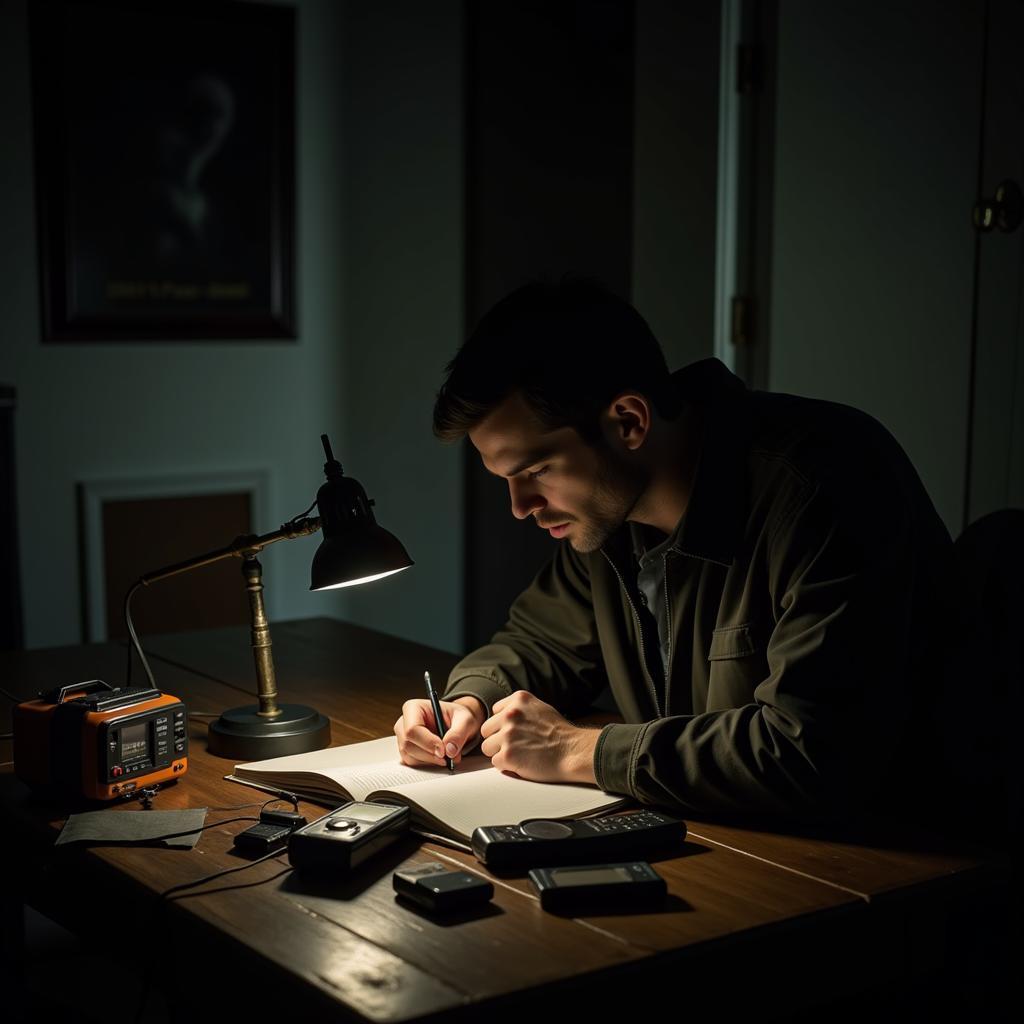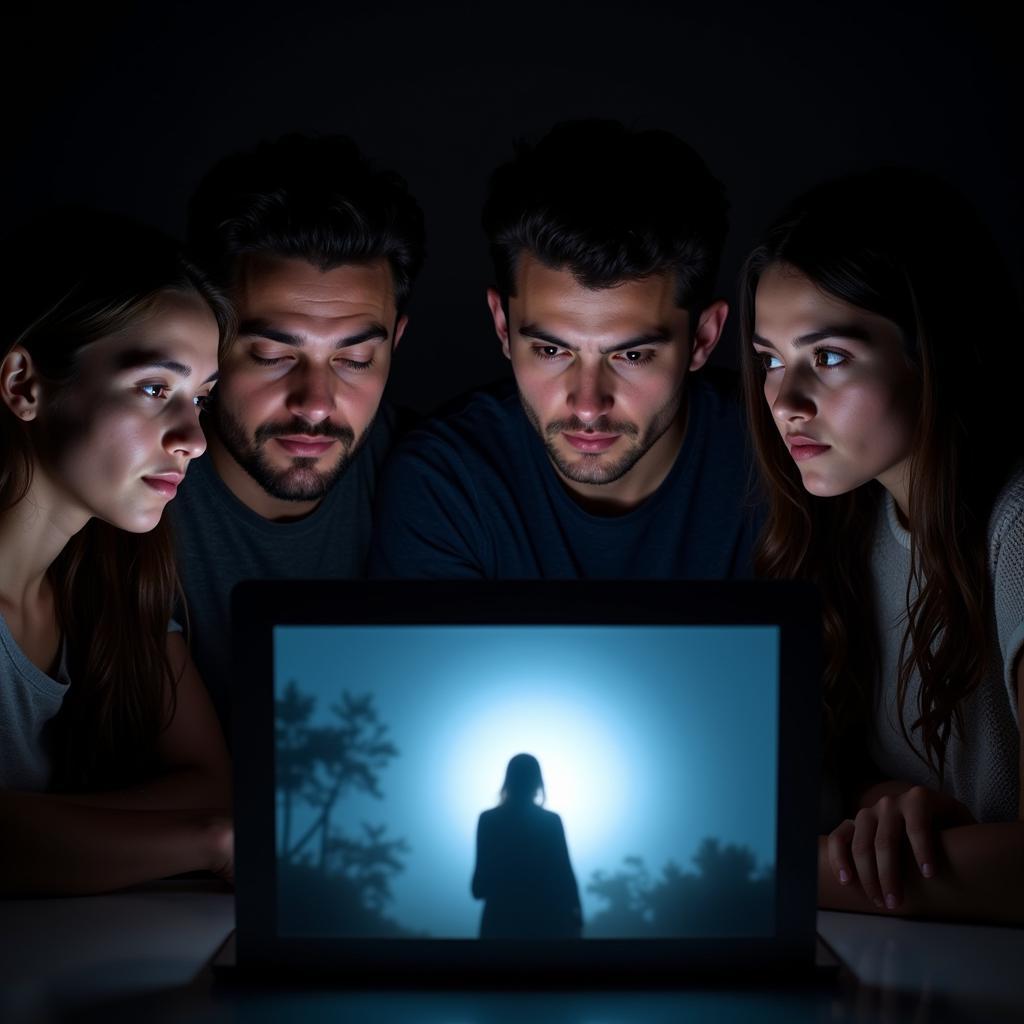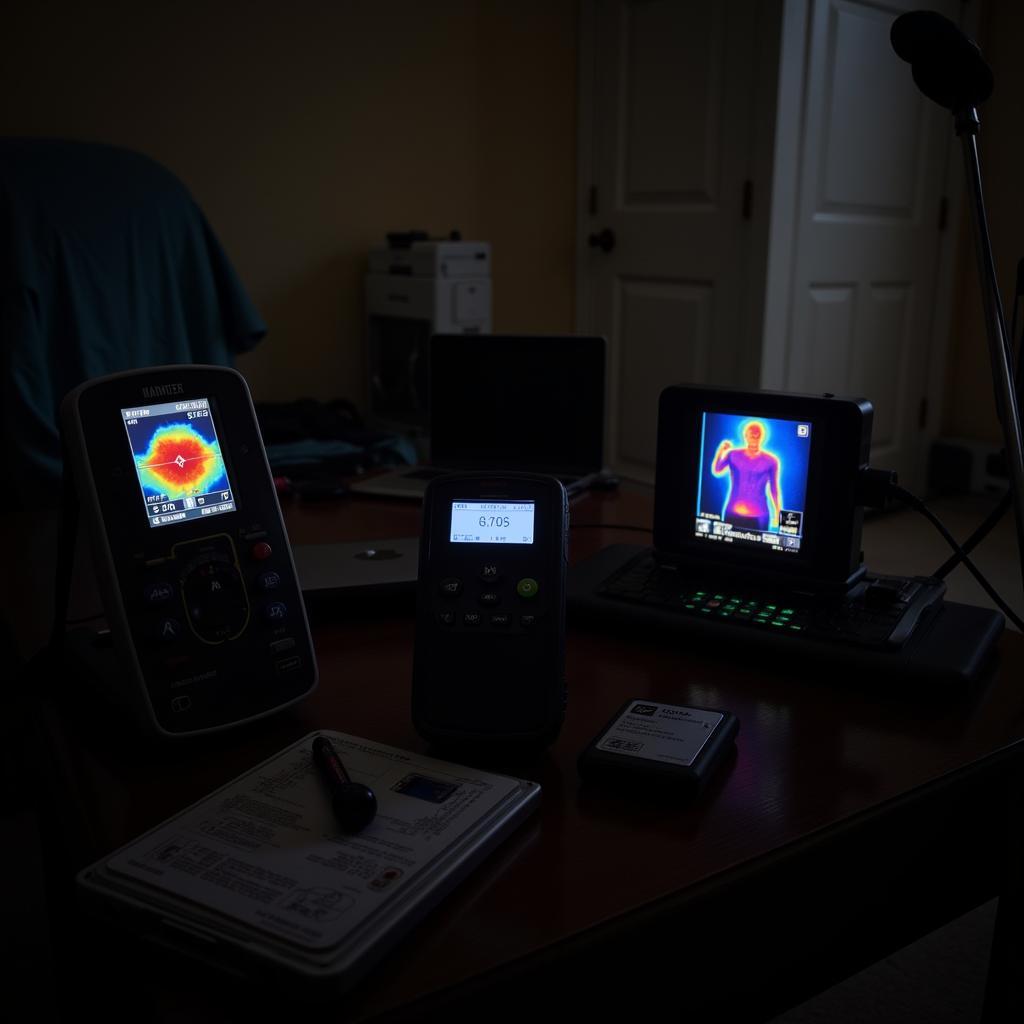Paranormal research, by its very nature, delves into the unknown and unexplained. While this makes it a captivating field, it also presents unique challenges, particularly when it comes to conflicts of interest. Just like in any other research field, maintaining objectivity and integrity is crucial for ensuring the validity and reliability of findings.
 Paranormal researcher meticulously documenting findings in a dimly lit room
Paranormal researcher meticulously documenting findings in a dimly lit room
The Allure of Belief and Its Potential Pitfalls
One of the biggest conflicts of interest in paranormal research stems from the strong beliefs held by many involved. While a passion for the paranormal can drive exploration and discovery, it can also cloud judgment. For instance, a researcher who deeply desires to prove the existence of ghosts might unconsciously interpret ambiguous data as evidence supporting their pre-existing beliefs. This is similar to the way sports gambling research can be influenced by personal biases.
 Team of paranormal researchers huddled together, examining photographic evidence
Team of paranormal researchers huddled together, examining photographic evidence
Financial Incentives and Sensationalism
The financial aspect of paranormal research can also create conflicts of interest. Some researchers might feel pressured to produce sensational findings to attract more funding, media attention, or public interest. This can lead to exaggerated claims, misrepresented data, or even fabricated evidence. Sensationalized stories might garner temporary attention but ultimately erode the credibility of the entire field. This ethical dilemma mirrors the challenges faced by criminal justice researchers have ethical obligations to uphold in their work.
The Importance of Skepticism and Rigor
So how can we mitigate these conflicts of interest? The answer lies in embracing both skepticism and rigor. Paranormal researchers must apply stringent scientific methodologies, just like researchers in any other field. This includes:
- Establishing clear research questions and hypotheses.
- Employing control groups and blind procedures to minimize bias.
- Using reliable and calibrated equipment.
- Documenting findings meticulously.
- Seeking peer review and replication of results.
- Remaining open to alternative explanations.
 An array of high-tech paranormal investigation equipment set up in a darkened room
An array of high-tech paranormal investigation equipment set up in a darkened room
Ethical Considerations and Transparency
Furthermore, ethical considerations should be at the forefront of every investigation. Researchers should obtain informed consent from individuals involved, respect privacy concerns, and avoid exploiting vulnerable individuals. Transparency is also key. Openly disclosing funding sources, potential biases, and limitations of the research helps maintain accountability and trust. Just as in evaluating research in communication disorders, transparency and rigor are paramount.
Seeking Truth in the Darkness
Navigating the world of paranormal research requires a delicate balance. While passion and a belief in the unknown can be powerful motivators, they must be tempered with a healthy dose of skepticism, rigorous methodology, and unwavering ethical standards. By adhering to these principles, researchers can contribute to a more informed understanding of the unexplained while maintaining the integrity of their work. Conflicts of interest are unavoidable, but by acknowledging and addressing them head-on, we can strive for objectivity and seek truth even in the most enigmatic corners of our world.
FAQs
1. How can I be sure a paranormal investigation is credible? Look for transparency in their methods, use of scientific equipment, and willingness to consider alternative explanations.
2. Do financial incentives always lead to biased results in paranormal research? Not necessarily, but it’s important to be aware of the potential for bias and scrutinize findings carefully.
3. What are some red flags to watch out for in paranormal investigations? Exaggerated claims, lack of control groups, and reliance on anecdotal evidence should raise concerns.
4. Are there any established scientific methods used in paranormal research? While the field is still developing, researchers are adapting methods from fields like psychology, physics, and environmental science to collect and analyze data.
5. How can I get involved in ethical and responsible Paranormal Research? Seek out reputable groups that prioritize scientific rigor and ethical conduct.
For more information on navigating the complexities of research, you can explore related topics like citi equity research and ideal clinical research, which highlight the importance of objectivity and ethical considerations in different research contexts.
Need help navigating the unexplained? Contact us at Phone Number: 0904826292, Email: [email protected] or visit us at No. 31, Alley 142/7, P. Phú Viên, Bồ Đề, Long Biên, Hà Nội, Việt Nam. Our team is available 24/7 to assist you.